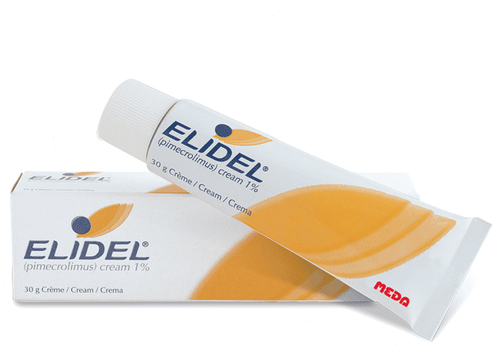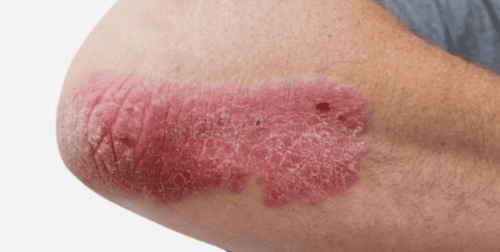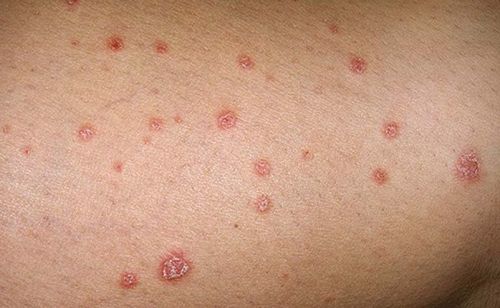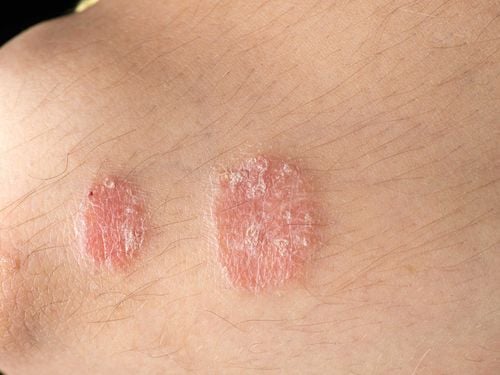This is an automatically translated article.
Obesity is a risk factor for psoriasis, and it can make psoriasis worse. The cause of this condition may be due to inflammatory mediators and the microbiome in the body. Scientists are still conducting research as well as clinical trials to better explain this relationship.
1. What is Psoriasis?
Psoriasis is a common chronic inflammatory skin disease. It affects about 2 to 4% of the general population, and patients often present with erythema, scaly patches, and plaques on the scalp, back, elbows, and knees. Psoriasis has a mortality rate. mortality is very low (possibly rare) but it greatly affects the quality of life of patients. Furthermore, the disease is associated with a number of comorbidities such as: psoriatic arthritis (this is a potentially debilitating inflammatory joint condition that affects approximately 34% of patients with psoriasis), increased risk of skin cancer, lymphoma, diabetes, metabolic syndrome, venous thrombosis, stroke, and heart attack. The pathogenesis of psoriasis is thought to be the result of interactions between genetic components, immune dysfunction, and environmental factors. The immune response in psoriasis is characterized by proliferation of Th1, Th17 and Th22 cells leading to the production of inflammatory mediators, tumor necrosis factor (TNF)-α, interleukins ( IL) -6 and IL -22.2. The relationship between psoriasis and obesity
The prevalence of psoriasis in adults is increasing. It is possible that the cause is genetic, but it is not the only cause. In addition, it is also due to environmental factors including lifestyle, eating habits, exercise... are also very important. Today, the eating habits in developing countries are often high in fat, especially saturated fat, high in salt and sugar, creating excess calories leading to overweight, obesity and diseases of the metabolic syndrome. chemical.
Bệnh vảy nến có liên quan đến vấn đề thừa cân béo phì
2.1. Studies on the relationship between psoriasis and obesity In a Norwegian study with 35,000 participants, the results of the metabolic syndrome and the risk of developing psoriasis were found. When analyzing the factors affecting metabolism, the authors have shown that obesity is a special influencing factor for psoriasis. Similar to the results of this study, epidemiological researchers also studied and provided reliable evidence that obesity is a cause of psoriasis and disease development.
In addition, a study by Setty and colleagues in 78,626 women (of whom 892 reported psoriasis) found that fat and weight gain were risk factors for the development of psoriasis. . Patients with a body mass index (BMI) of 35 or higher were 2.69 times more likely to develop psoriasis than the general population.
Or a recent study has also shown that obesity and high belly fat double the risk of psoriasis. The study also suggested that preventing weight gain or maintaining a normal weight could reduce the incidence of psoriasis.
Studies consistently show a positive effect of weight loss on psoriasis severity. Therefore, dietary weight loss is recommended in overweight and obese patients with psoriasis.
2.2. Explanations for this association One question arises as to whether dietary differences (low-carbohydrate, ketogenic, or vegetarian) have an effect on psoriasis improvement. Therefore, understanding the epidemiological relationship between obesity and/or diet and psoriasis is important in the assessment of modifiable risk factors for the occurrence and development of psoriasis. .
As is known, adipose tissue is an important endocrine organ secreting soluble factors involved in inflammation and immunity. Thus, adipose tissue enlargement and secretion of inflammatory mediators may worsen psoriasis.

Tế bào mô mỡ có liên quan đến bệnh vảy nến
Another important aspect is the fact that obesity and diet affect the body's microbiome. Recently, scientists have demonstrated that the microbiome - represents the entire microbiome on the outer and inner surfaces of the human body. It can have a powerful effect on autoimmune diseases. At the same time, there is some evidence that this may also be the case in psoriasis. Therefore, the role of the microbiome has been emphasized in recent experimental studies.
Psoriasis is a chronic inflammatory skin disease with a complex interplay between immune cells and tissue cells. Genetic and environmental factors contribute to psoriasis. One of the environmental factors that are obesity and nutrition has an important impact on the onset and severity of the disease. And studies have shown that dietary saturated fat appears to be an amplifying factor for psoriasis inflammation.
Vinmec International General Hospital with a system of modern facilities, medical equipment and a team of experts and doctors with many years of experience in medical examination and treatment, patients can rest assured to visit. examination and treatment at the Hospital.
To register for examination and treatment at Vinmec International General Hospital, please book an appointment on the website for the best service.
References: ncbi.nlm.nih.gov, webmd.com
Please dial HOTLINE for more information or register for an appointment HERE. Download MyVinmec app to make appointments faster and to manage your bookings easily.
MORE
Is Psoriasis Contagious? Psoriasis is difficult to treat definitively Does psoriasis cause itching and how is it treated?













